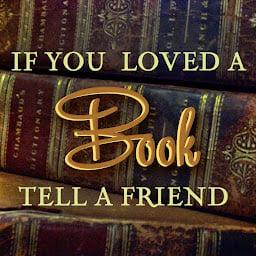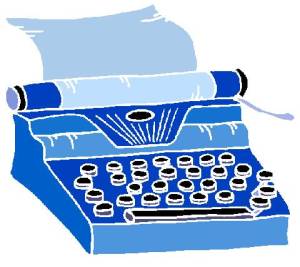
By Linda O. Johnston
Many people have something special to remember about Valentine’s Day. I certainly do. It was the day I got engaged to my wonderful husband—more than four decades ago now.
We still lived in Pittsburgh then, and my first Cavalier King Charles Spaniel Panda—Pandaemonium—celebrated with us. We even let him lick the dry exterior of the champagne bottle. Guess it must have smelled interesting, though, of course, we didn’t give him a drink.
We got married in May and have been celebrating ever since, here in Los Angeles now, along with whichever Cavaliers are with us each year. This year, it’s Cari and Lexie.
Happy Valentine’s Day, everyone!
By Rosemary Lord
It’s wonderful, marvelous – this outward show of love, with images of celebrations, hearts and flowers, love songs…
But more intriguing for me as a writer is the silent love that stays hidden. The oft-unrequited love, the unspoken love. The secret love. The love that tugs at the heartstrings.
Whether it’s the quiet, shy love where the individual feels inadequate to express feelings about their heart’s desire. Not wanting to risk rejection, they stay silent. Or the cautious person afraid of getting ridiculed by revealing where their heart wants to go. The feelings of unworthiness or inadequacy to receive their heart’s desire. The secret love that someone dreams of from afar.
And it’s not just a love of another person. It’s the love and passion for dreams yet to be realized.
It’s the passion for a seemingly unattainable goal, project, or career. Those loves so often stay hidden. The offer or demonstration of love that is held back for fear of being laughed at or worse, being ignored.
It’s the unwritten love stories that stay locked away in a writer’s head for fear of rejection – or just unsure of a perfect ending. The love stories that will never see the light of day.
How many amazing, intriguing tales of love and passion remain hidden and lost to the world?
Those are the love stories that I want to read and want to write.
.
By Gayle Bartos-Pool
STOP! in the Name of Love, Searching for Love, You Can’t Hurry Love, April Love, When I Fall in Love, When a Man Loves a Woman, Love Is a Many Splendored Thing, All You Need Is Love, Dream Lover, Can’t Help Falling in Love, I Just Called to Say I Love You, How Deep Is Your Love, Love Me Tender, Love Will Keep Us Together, Love Me or Leave Me, I Will Always Love You…
So many ways to search for love… until it finds you because it so often does in the most interesting places. Then you want to hold onto it… if you can, and you do because, as that last song title says: I Will Always Love You.
Richard and I had a couple of songs we liked, both from singer Randy Travis. We even went to one of his concerts. The songs: Forever and Ever, Amen, and Look Heart, No Hands. And there’s that other one that still brings tears to my eyes: I Will Always Love You…And it always will because Love Is a Many Splendored Thing. Ain’t Love great…
By Jill Amadio
My Dearest Valentine,
Here it is, another year, and I dislike you more than ever. Ever since you rejected my submission, the third in my mystery series, I have awoken with bitterness in my heart towards you.
Do you ever consider how your rejections affect authors who are begging for acceptance and publication?
Do you realize the amount of royalties that were envisioned, only to have that dream turn into a nightmare? I was thinking of sending you a big bouquet of dead flowers, but then I thought about the cost of mailing them.
Always looking forward to next year!
jill
By Miko Johnston
The journey of love takes place over a lifetime. The early yearning for it. The sweet innocence of that first infatuation. The intensity of true requited love. The joy and peace that come from loving someone and having their love over the years. The sweetness of togetherness and the sorrow of loss. Music has always captured those emotions so well. A very partial and personal list:
“How Will I Know?”
“I Believe (When I Fall in Love it will be Forever)”
“Can’t Help Falling in Love”
“At Last”
“I Got You Babe”
“My Guy”
“Only You”
“Unchained Melody”
“God Only Knows”
“In My Life”
“Maybe I’m Amazed”
*
“I Don’t Want to Spoil the Party”
“The Tracks of my Tears”
“How Can You Mend a Broken Heart”
“All In Love is Fair”
“I Will Always Love You”
For me, love has always held hands with music.
By Jackie Houchin
For about 22,630 days, I have felt loved in one way or another. This is approximately how long I have been married to my one and only husband. (62 years on February 1st) Of course, I felt loved in the months of engagement before that, too.
Love isn’t always romantic. Sometimes it’s simply sustaining, especially in times of trouble. Sometimes love is felt when you are sick in bed, and a warm bowl of soup is brought to you. Or when you are exhausted…. and the long list of household chores gets finished without a word from you.
I feel loved when I come up with “brilliant” (I think) ideas, and my husband (who might roll his eyes a bit) sets about to accomplish them to the best of his ability.
Yes… I am definitely LOVED, and I feel it every day.














You must be logged in to post a comment.